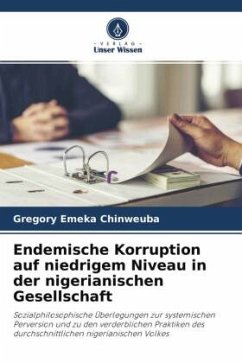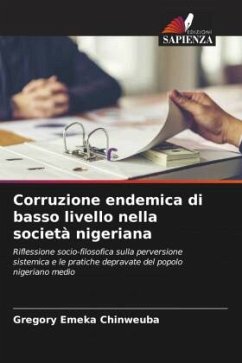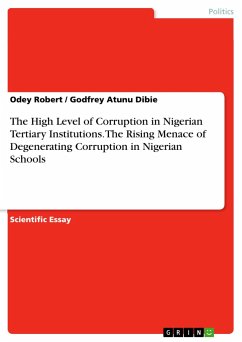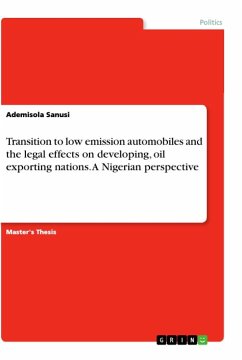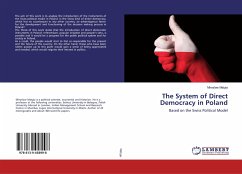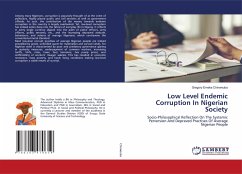
Low Level Endemic Corruption In Nigerian Society
Socio-Philosophical Reflection On The Systemic Perversion And Depraved Practises Of Average Nigerian People
Versandkostenfrei!
Versandfertig in 6-10 Tagen
41,99 €
inkl. MwSt.

PAYBACK Punkte
21 °P sammeln!
Among many Nigerians, corruption is popularly thought of as the crime of politicians, highly placed public and civil servants as well as government officials. As such, the contribution of the masses towards endemic corruption in the country is largely overlooked. Yet, low-level corruption has indeed eaten deep into the fabrics of everyday life in Nigeria. It reflects in every single currency slipped into the palm of police officers, army officers, public servants, etc., and the increasing depraved attitude, behaviours, and actions of average Nigerians, which contravene the conventional moral s...
Among many Nigerians, corruption is popularly thought of as the crime of politicians, highly placed public and civil servants as well as government officials. As such, the contribution of the masses towards endemic corruption in the country is largely overlooked. Yet, low-level corruption has indeed eaten deep into the fabrics of everyday life in Nigeria. It reflects in every single currency slipped into the palm of police officers, army officers, public servants, etc., and the increasing depraved attitude, behaviours, and actions of average Nigerians, which contravene the conventional moral standard. Most low-level corrupt practises of average Nigerian people are indeed propelled by greed, unbridled quest for materialism and survival needs. For Nigerian state is characterised by poor and predatory governance glaring in austerity measures, underpayment of common workers, increasing tariffs, VATs, rates, taxes, fuel, kerosene, Gas pump prices, and withholding of workers' meager salaries. This has resulted in economic recessions, mass poverty, and harsh living conditions making low-level corruption a viable means of survival.





